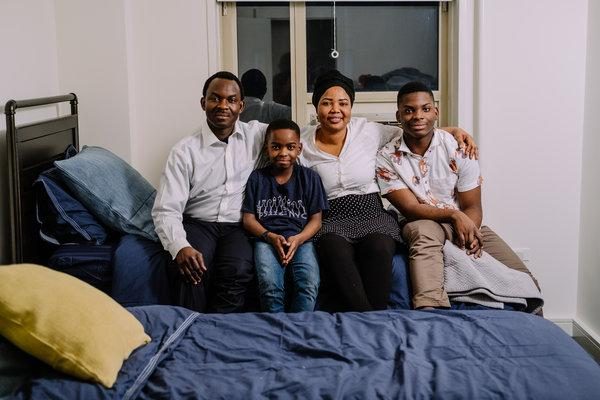By Dennis Shaughnessy
In our classes this past academic year, students worked on developing social enterprises to create employment and other opportunities for refugees and people seeking asylum and eligible to work. The topic of immigration and refugees has become an important one in social enterprise and social innovation learning, independent of the political debate in the US and around the world. Among the many compelling refugee stories over the past months, one in particular stood out.
It all started with Nick Kristof’s article in the New York Times on Sunday March 17. Kristof told us the inspiring story of a young Nigerian boy named Tanitoluwa Adewumi, who along with his older brother and parents successfully sought asylum in the US.
What made this story go viral was that Tani won the chess championship for 8-year olds in New York after only learning to play a year ago. He’s brilliant and he’s incredibly disciplined with an intense focus and work ethic. He’s not only a refugee, he’s also homeless.
Kristof’s many readers reacted immediately to this remarkable story, offering praise and support, including financial donations (through crowdfunding), offers of employment for his parents, housing, and more. So why is it that one boy brings out such a strong empathetic response from so many, while many if not most Americans seem less than empathetic for the plight of refugees generally?
The news these days is dominated by talk of a “flood” of refugees seeking asylum in the US, with references to threatening caravans full of gang members, drug dealers, even terrorists. We read or hear that refugees and immigrants commit crimes while living off of public assistance programs and overwhelming our schools and taking our jobs
It’s curious how one refugee like Tani generates widespread and enthusiastic support, while tens of thousands of refugees from the Northern Triangle of Central America (Honduras, El Salvador and Guatemala) are condemned and even considered a threat to our national sovereignty.
The anti-immigration debate seems to depend on dehumanizing people seeking a better life for their families in America. Tani, on the other hand, is very human to readers. He’s also an exceptionally talented human, and in the eyes of many that seems to mean that he is “deserving” of our support and even citizenship.
In the meantime, the crowdfunding campaign has allowed Tani’s parents to leave their Manhattan shelter and rent an apartment to provide a more stable life for their sons. In fact, their campaign raised so much money that these refugees donated much of what was raised to support other programs for the homeless and for refugees. Clearly, there’s no empathy deficit in Tani’s family.

One can hope that eventually our individual and collective empathy will extend to every person seeking asylum who is escaping violence and poverty in their home countries. Recalling Gandhi’s memorable reference to “poverty is indeed the worst form of violence” we might offer our empathy and compassion for the poor children (and families) seeking refuge here–even if they’re not brilliant and dedicated chess champions.
In the words of Tani’s dad: “The U.S. is a dream country! Thank God I live in the greatest city in the world, which is New York!” Welcome to Tani’s family and all those refugees who are seeking asylum from violence, oppression and most of all the indignity and suffering of extreme poverty.


